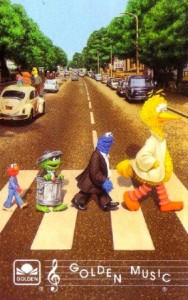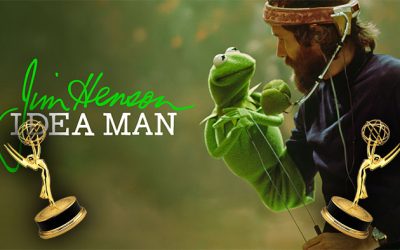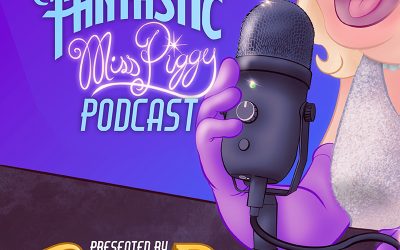 Cerf’s Up
Cerf’s Up
Thursday, July 18
I have mixed feelings about kids. I’m not one of these kid-haters who meet every prepubescent with a scowl, expecting to be pelted with used gum and GameBoy cartridges, but I’m not exactly out there browsing the aisles of Adoptions’R’Us with Billy Bob and Angelina, either. It is my sincere belief that children are unrivalled as an effective means of producing adults. (And vice, now that I come to think of it, versa.)
My point is that usually, when I’m writing about Sesame Street stuff, I either have half a mind to the Hypothetical Ideal Demographic Kid, or I’m tapping into my own Inner Kid. So I’m enjoying it as a fan, and as a Child-at-Heart, and you know, there’s levels. But today — forget about the kids. The kids are off the list. Today, it’s all about Grown-Up Sesame.
Today, I’m listening to what Big Bird refers to, in an odd turn of phrase, as “the band you’ve known for all these years, the Sesame Street Beetles!”
The album: Sesame Road.
So far this week, I’ve been listening to bootlegs of albums that I really should have owned, but never did. (Actually, they’re quite nice cassette copies, and strictly for professional purposes, but “bootleg” sounds so much cooler.) But Sesame Road — this one, I own. This one, I’ve been playing for my own amusement for weeks. This one’s cool.
I mean… you know… Geek Cool.
Let’s start with the cover — a loving parody of the Beatles’ Abbey Road, with cute details for the folks who care, right down to the little suits on Elmo, Oscar, Cookie and the Bird, and, just visible behind a Volkswagen (license plate number: CTW), Prairie Dawn, Ernie and Bert. (Conspiracy theorists: Both Oscar and Big Bird are barefoot. Who buried who?)
So what I was saying about levels is that you don’t have to imagine how it might be entertaining for a kid, or how if you were a parent it might make a nice break from sitting through Barney albums or whatever. You don’t have to know how much research and insight went into crafting these songs as educational tools. You can enjoy it at whatever level it strikes you. But this is the real genius of Sesame Road — it actually does work on all those levels.
This is a compilation of pop song parodies and pastiches from the Street, spanning 1973 to 1992, and the name of Christopher Cerf figures very prominently — fourteen of the twenty tracks feature Cerf as a writer or co-writer. His “Letter B” opens the album, “Healthy Food” and “Rebel L” are smack in the middle, and “Hey Food” closes it, making this pretty much a Cerf safari.
If you’re somewhere around the age of 25, and you watched Sesame Street growing up, chances are your first exposure to the music of the Beatles wasn’t their music at all — it would have been something on this album. I have three separate friends who all, like me, grew up thinking that “Let It Be” actually was about the second letter of the alphabet. Now, there may be some Beatles purists out there who think that’s a travesty, but these are people who bought Paul McCartney’s book of poems, so who’s laughing now?
Most of the people I’ve played these songs for have asked, “Did they pay to use Beatles songs?” So I feel obliged to point out that the music is entirely original — they’re close sound-alikes, but they’re not identical. Sound-alikes are deceptively difficult to write, and well-produced sound-alikes are extremely rare indeed. Sesame kids have been very well looked-after over the years.
Here’s an example. This is “Letter B.”
When I find I can’t remember
What comes after A and before C
My mother always whispers, Letter B
She told me B starts “big” and “bird”
And “ball” and “bat” and “battery”
Yes, “buh buh buh buh buh” means Letter B
Letter B, Letter B
Letter B, Letter B
She whispers “buh buh buh means Letter B”
And when I feel downhearted
Mother whispers B words constantly
Like “big,” “Bob,” “bald” and “bubble,” Letter B
Now in my hour of darkness
There’s a sound I know will comfort me
It’s the “buh buh buh buh buh” of letter B
Letter B, Letter B
Letter B, Letter B
My mother whispers B words, Letter B
Now, that’s not just an educational parody of the Beatles song. It’s also funny and really deeply weird in its own right.
Of all the albums I’m looking at this week, this is the only one that actually ventures unapologetically into the realm of the song parody. You can see why Sesame Street needs to appeal to as broad an audience as possible — it’s that levels thing — and song parodies are a really effective way of doing that. But why is only Sesame Street doing it? Why is Sesame Road the most listenable album I’ve reviewed this week?
Surely the classic Muppets also need to appeal to as broad an audience as possible. And, in fact, it should be even easier for them, since they don’t have a curriculum to follow — they just have to do silly songs, they don’t got to educate nobody. But it’s “Hey Food” I’m humming this week, not “Woolly Bully.” It’s buh-buh-buh-baffling.
by Kynan Barker

 Cerf’s Up
Cerf’s Up

